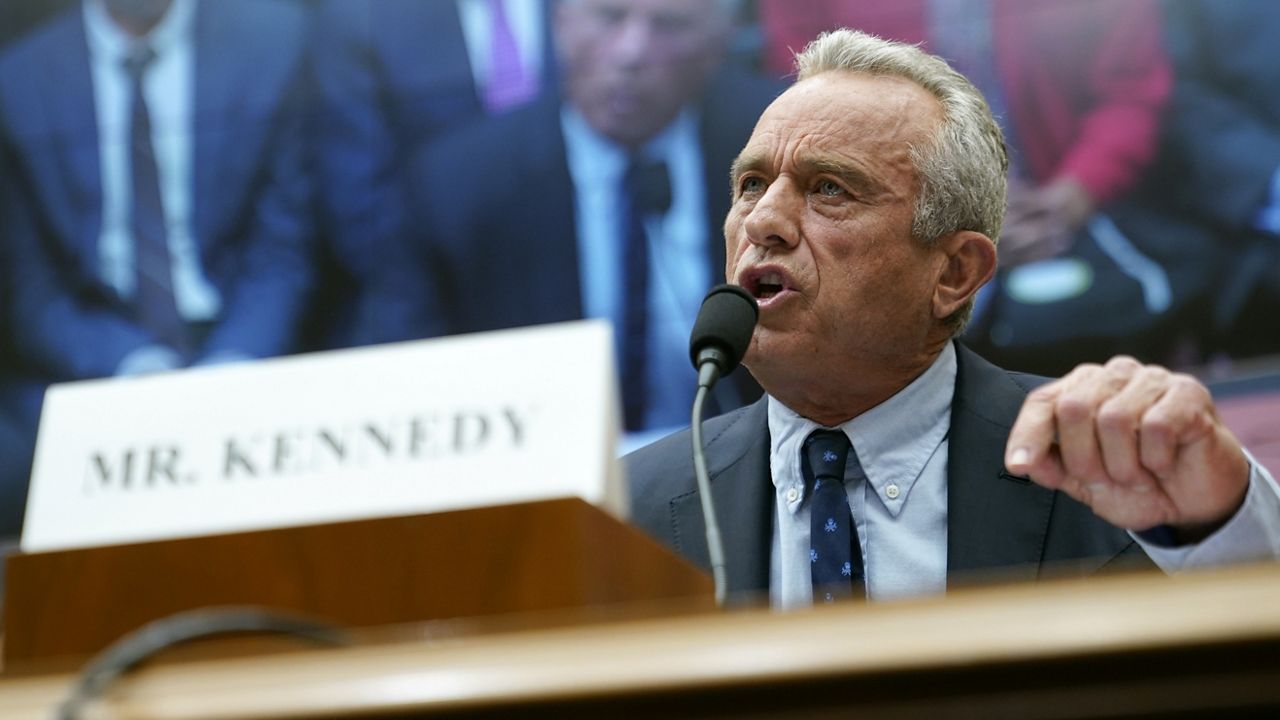The Trial and Testimony

The trial in question involves a legal dispute over Robert F. Kennedy Jr.’s residency, a critical factor in determining his eligibility for a particular office. The homeowner’s testimony is central to the case, as it provides firsthand evidence regarding Kennedy Jr.’s living arrangements. The legal significance of residency is rooted in the requirement that candidates for certain offices must reside within the jurisdiction they seek to represent.
The Homeowner’s Testimony
The homeowner, a resident of the state in question, testified that Robert F. Kennedy Jr. rents a room in their home. This testimony was crucial to establishing Kennedy Jr.’s residency within the state, as it provided evidence of his physical presence and intent to make the state his primary residence. The homeowner’s testimony detailed the nature of Kennedy Jr.’s living arrangements, including the length of his residency, his personal belongings in the room, and his regular presence at the home.
The Legal Significance of Residency, Ny homeowner testifies that rfk jr rents a room at trial disputing whether he lives in the state
Residency is a legal concept that determines an individual’s connection to a particular jurisdiction. It is often a requirement for voting, holding public office, and accessing certain benefits. In the context of this trial, the legal significance of residency lies in its connection to Kennedy Jr.’s eligibility to run for office. The law dictates that candidates must reside within the jurisdiction they seek to represent. Therefore, the homeowner’s testimony, which established Kennedy Jr.’s residency within the state, is a crucial piece of evidence in the case.
Robert F. Kennedy Jr.’s Residency

The question of Robert F. Kennedy Jr.’s residency in Connecticut, where he was running for the U.S. Senate, was a key issue during the trial. The trial focused on whether Kennedy Jr. met the residency requirements to run for office in the state. This issue was crucial because Connecticut law requires candidates for the U.S. Senate to be residents of the state for at least one year prior to the election.
Evidence Presented Regarding Kennedy Jr.’s Residency
The evidence presented during the trial regarding Kennedy Jr.’s residency included various documentation and testimony. The evidence aimed to demonstrate whether Kennedy Jr. met the legal definition of residency in Connecticut.
- Voter Registration: Kennedy Jr. registered to vote in Connecticut in 2022, but he had previously registered to vote in California and New York. This evidence was presented to show his voting history and where he considered himself a resident.
- Tax Returns: Kennedy Jr. filed his tax returns in Connecticut in 2022. However, he had previously filed his tax returns in California. This information was used to demonstrate his financial ties to the state and where he claimed residency for tax purposes.
- Driver’s License: Kennedy Jr. obtained a Connecticut driver’s license in 2022. This was presented as evidence that he was actively establishing residency in Connecticut.
- Home Ownership: Kennedy Jr. owned a home in Connecticut, but he also owned properties in California and New York. This evidence was presented to show his real estate holdings and where he had invested.
- Testimony: Kennedy Jr. testified in court that he considered Connecticut his primary residence. He claimed to spend most of his time in Connecticut and that he had moved his family to the state. He also testified that he had established a home in Connecticut and had a driver’s license, registered to vote, and paid taxes in the state.
Arguments Made by Both Sides Regarding Kennedy Jr.’s Residency
The opposing sides presented arguments based on the evidence presented. The arguments focused on the legal definition of residency and how it applied to Kennedy Jr.’s circumstances.
- Plaintiff’s Argument: The plaintiff argued that Kennedy Jr. did not meet the residency requirements to run for the U.S. Senate in Connecticut. They claimed that Kennedy Jr. had maintained his primary residence in California and that his actions in Connecticut were merely an attempt to establish residency for political purposes. They cited Kennedy Jr.’s previous voting registration and tax returns in California, as well as his continued ownership of properties in California, as evidence that he was not a bona fide resident of Connecticut.
- Defendant’s Argument: The defendant argued that Kennedy Jr. met the residency requirements to run for the U.S. Senate in Connecticut. They claimed that Kennedy Jr. had established a new home in Connecticut and had demonstrated his intent to make Connecticut his primary residence. They cited Kennedy Jr.’s voter registration, tax returns, driver’s license, and home ownership in Connecticut as evidence of his residency.
The Legal Definition of Residency
The legal definition of residency varies by state. However, it generally refers to a person’s intent to establish a permanent home in a particular location. Courts often consider several factors when determining residency, including:
- Physical Presence: The amount of time a person spends in a particular location.
- Voting Registration: Where a person registers to vote.
- Tax Returns: Where a person files their tax returns.
- Driver’s License: The state where a person obtains a driver’s license.
- Home Ownership: Whether a person owns property in a particular location.
- Social and Economic Ties: A person’s social and economic connections to a particular location.
- Intent to Remain: A person’s intention to make a particular location their permanent home.
Implications and Potential Outcomes: Ny Homeowner Testifies That Rfk Jr Rents A Room At Trial Disputing Whether He Lives In The State
The outcome of the trial could have significant implications for both the case itself and its participants. The residency dispute could impact the legal proceedings, public perception of Robert F. Kennedy Jr., and the political discourse surrounding the case.
Legal Ramifications of the Residency Dispute
The residency dispute could have significant legal ramifications, potentially impacting the outcome of the case. If the court determines that Robert F. Kennedy Jr. does not meet the residency requirements to run for office, he could be disqualified from the race. This would be a major setback for his campaign and could significantly alter the political landscape of the race.
Impact on Public Perception and Political Discourse
The trial and the residency dispute have already drawn significant attention from the media and the public. The outcome of the trial could further shape public perception of Robert F. Kennedy Jr. and his candidacy. If he is found to have met the residency requirements, it could strengthen his campaign and increase his chances of winning the election. However, if he is disqualified, it could damage his reputation and hinder his future political aspirations.
The trial could also have broader implications for political discourse, particularly regarding the issue of residency requirements for political candidates. The case could raise questions about the effectiveness of these requirements in ensuring that candidates are truly connected to the communities they seek to represent. It could also spark a debate about the role of residency requirements in preventing wealthy individuals from buying elections.
“The outcome of this trial could have a ripple effect on the political landscape, influencing future debates about residency requirements and the role of wealth in politics.”
Ny homeowner testifies that rfk jr rents a room at trial disputing whether he lives in the state – The courtroom buzzed with whispers as the homeowner testified, painting a picture of Robert F. Kennedy Jr. as a tenant, not a resident. The air, thick with legal tension, seemed to lighten momentarily as news of a triumph across the Atlantic reached the room: a good day mate Kennedy wins pole vault at Paris games for Australia’s record 18th Olympic gold.
This fleeting moment of shared joy, however, did little to alter the gravity of the legal proceedings, where the question of residency hung in the balance, casting a shadow over Kennedy’s political aspirations.
The courtroom buzzed with the testimony, a homeowner revealing that RFK Jr. rented a room, casting doubt on his residency claims. Perhaps a comfortable dorel living reva accent chair in that rented room would have made the case for residency more convincing.
The legal battle continues, a tapestry woven with threads of residency and the weight of evidence.
